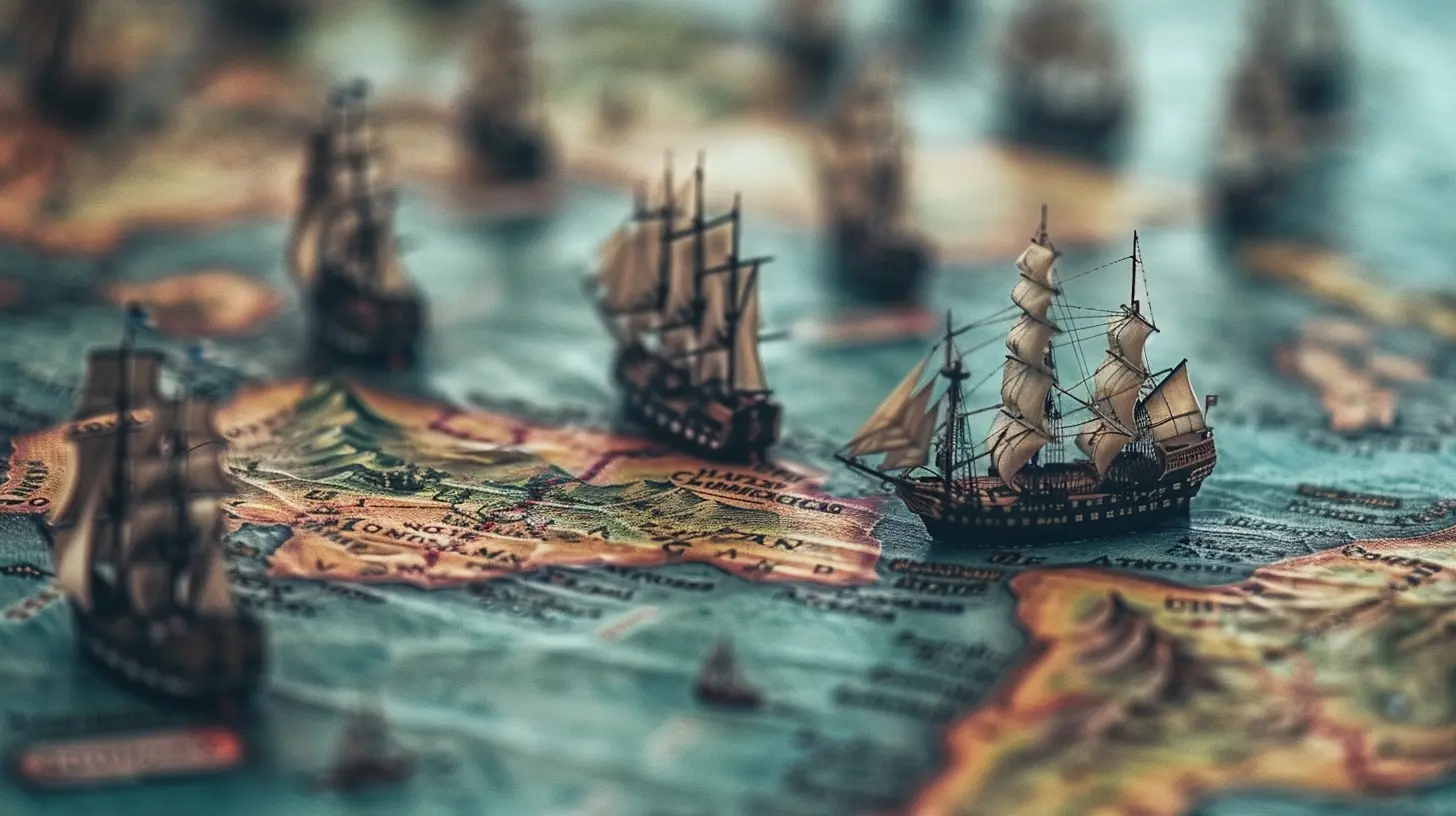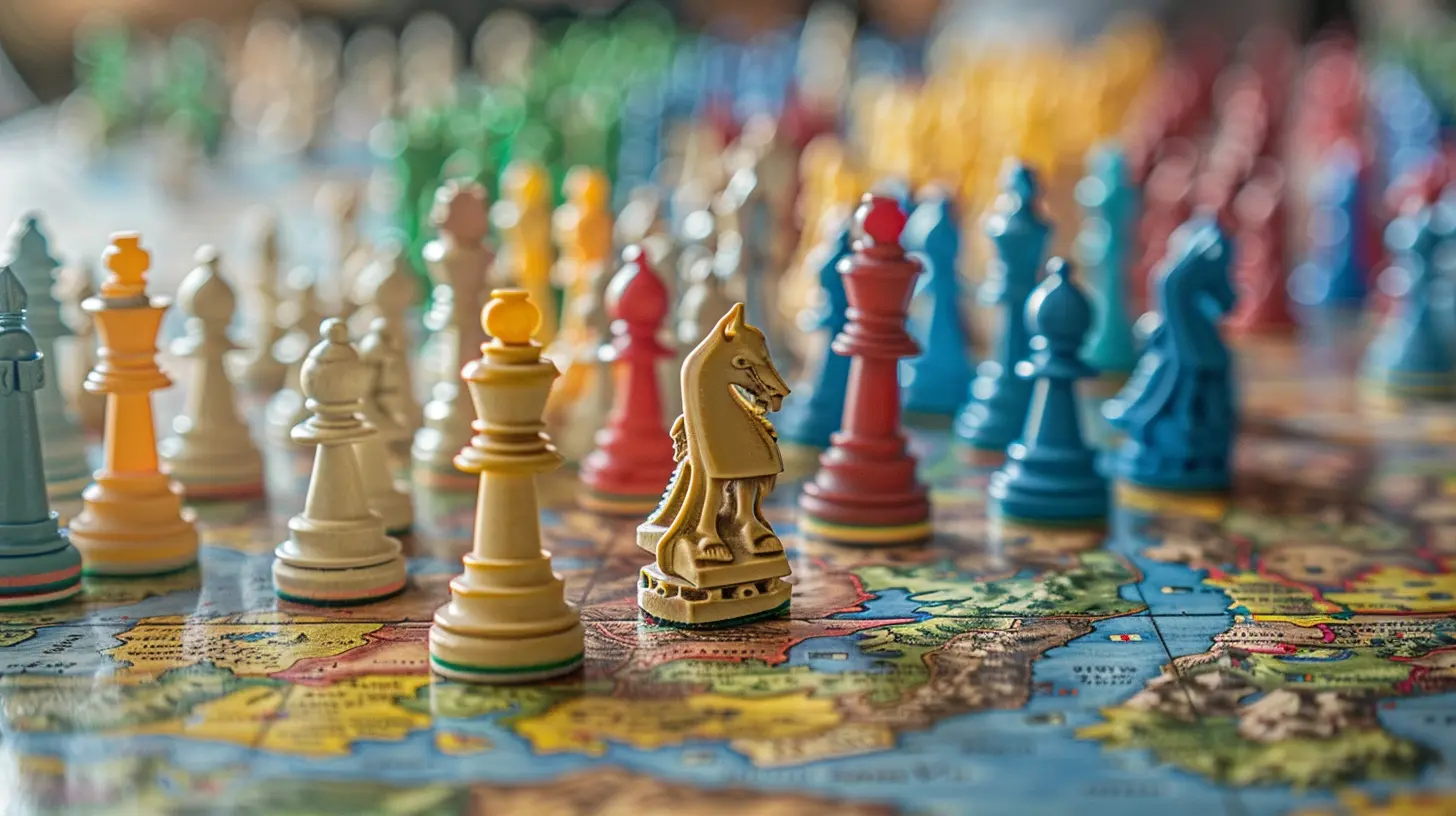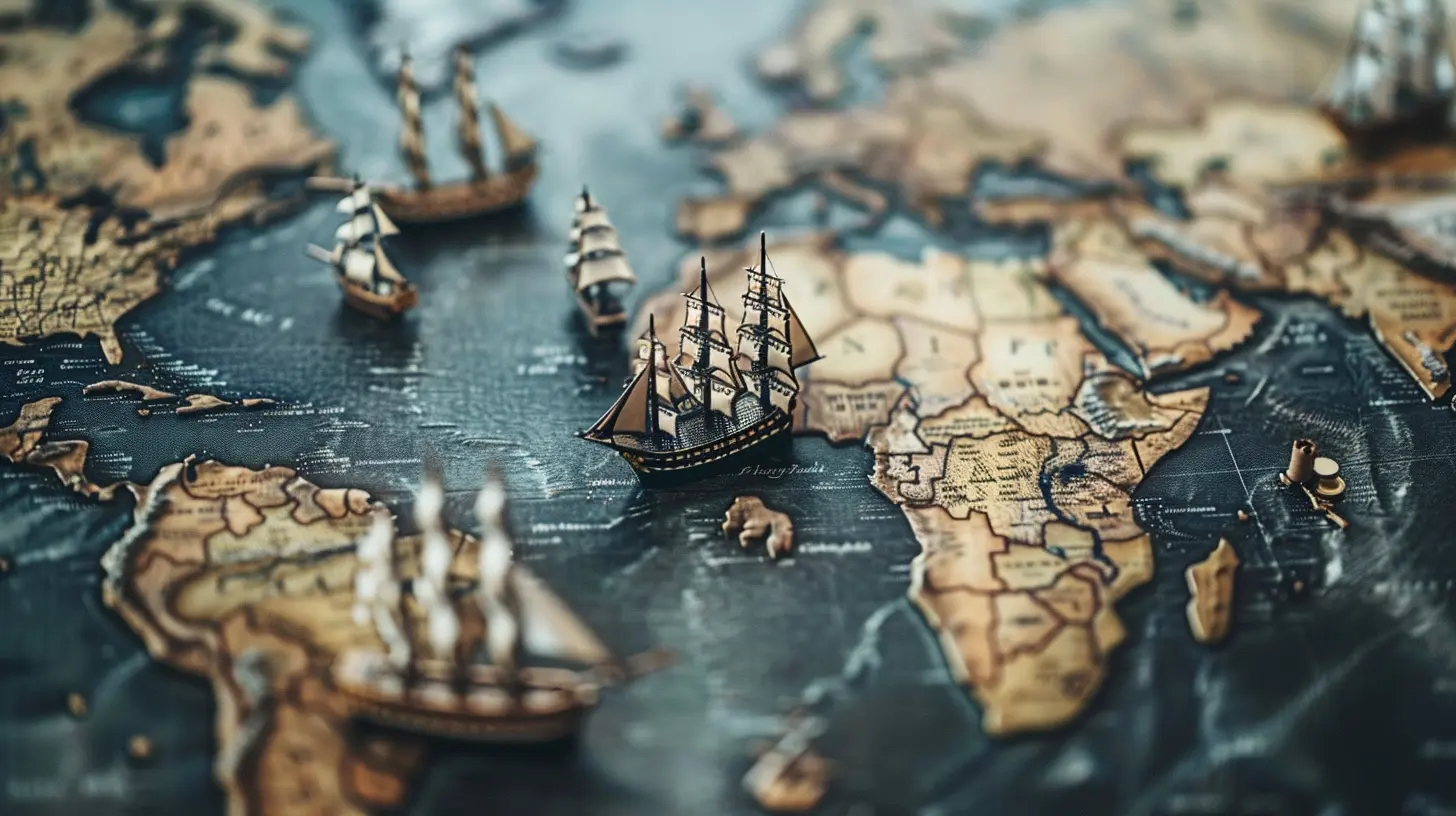17 April 2025
So, you've just started a long campaign in your favorite strategy game. You've got your armies marching, your towns flourishing, and your enemies trembling. Life is good, right? But then—BAM! You realize you’ve run out of resources. Your armies are starving, your cities are in shambles, and, oh no, your elite knights have deserted because you can’t pay their wages. What just happened?
Let me tell you: logistics happened. Or rather, the lack of logistics happened. In the grand scheme of long campaign strategy games, logistics is that sneaky little detail that can single-handedly ruin your dreams of world domination if you ignore it. Let’s dive deep into this often-overlooked aspect of the genre, and hey, let’s add a sprinkle of humor along the way. After all, if we’re going to talk logistics, we’d better make it fun, right?

What Even Are Logistics in Strategy Games?
First, let's get one thing straight. Logistics isn't just that boring business term you hear in supply chain meetings at work. In strategy games, it's the invisible glue that keeps your empire functioning. Think of it as the behind-the-scenes wizard pulling all the levers to make your army march, your city grow, and your economy hum along like a well-tuned machine.In gaming terms, logistics boils down to managing resources like food, gold, wood, stone, trade routes, and even population happiness. Without logistics, your grand plans will collapse faster than a Jenga tower on a shaky table. Logistics might not be as glamorous as battle tactics or diplomacy, but trust me, it’s the unsexy hero your campaigns desperately need.
Still not convinced? Let’s put it this way—logistics is like toilet paper. You don’t think about it until it’s gone, and by then, you’re in serious trouble.

Why Logistics Is the Real MVP in Long Campaigns
Long campaigns in strategy games are basically endurance tests. It’s not just about winning one battle or conquering one city; it’s about sustaining your momentum across dozens of them. That’s where logistics comes in. It’s the difference between steamrolling enemies effortlessly and sputtering to a humiliating halt because your troops are raiding local farms for scraps.1. Feeding the Beast (Or, Your Army)
Your army is hungry. Like, really hungry. Most long campaign games—from Total War to Civilization—have a mechanic for upkeep. If you don’t feed your troops, they’ll starve or, worse, mutiny. And nothing screams “game over” like a mutinous army looting your own cities.Balancing food supplies is like being a chef in a restaurant where everyone’s on keto, vegan, and low-carb diets simultaneously. You’ve got to manage farms, trade agreements, and supply chains to ensure those swordsmen don’t turn on you.
Pro Tip: Forgetting to stockpile food during winter in games like Crusader Kings 3 is the digital equivalent of leaving your phone charger at home on a road trip. Rookie mistake, my friend.
2. The Great Gold Guillotine
Oh, gold. The universal currency of every strategy game. It’s the fuel for hiring mercenaries, building wonders, and bribing that one annoying faction to back off. But here's the twist: if you’re not keeping an eye on your income-versus-expense ratio, your treasury is going to look emptier than a cookie jar at a toddler's birthday party.Many games, like Europa Universalis IV, slap you with interest payments if you take loans to fund your war campaigns. Next thing you know, you're drowning in debt and have turned into the medieval version of a broke college student eating ramen.
3. Supply Lines: The Achilles Heel of War
Ever tried sending an army deep into enemy territory without securing a supply line first? Let me save you the frustration—it doesn’t end well. Your troops will either starve, desert, or lose morale faster than you can say "game over."Supply lines are often poorly understood but critically important in games like Total War: Three Kingdoms. It’s like trying to hike Mount Everest but forgetting to bring oxygen. You might make it halfway up, but eventually, things are going to go south. Fast.
4. Trade Routes: The Unsung Heroes
In long campaign games, trade routes aren’t just for decoration—they’re lifelines. They bring in the goods your empire desperately needs but can’t produce on its own. Think of them as the post-apocalyptic version of Amazon Prime. You can’t build those shiny new trebuchets without the iron you’re importing from a neighboring kingdom.But beware! Trade routes come with their own headaches. Barbarians love ambushing poorly defended caravans, and hostile factions can blockade ports faster than you can say, “There goes my spice income.”
Fun fact: Did you know that in games like Age of Empires, a single disrupted trade route can derail your entire economy? It’s like losing Wi-Fi in the middle of a Netflix binge. You’re suddenly panicking and questioning all your life choices.

Logistics Fails That We’ve All Experienced
Let’s face it: we’ve all been there. Logistics fails are like bad haircuts—inevitable and usually self-inflicted. Here are some cringe-worthy moments that any strategic gamer can relate to:1. Overextending Without Backup
You got cocky, didn’t you? You marched your pristine army straight into enemy territory without a second thought. Now, they’re deep in the wilderness with no food, no reinforcements, and zero morale. Rookie mistake.2. Bankrupting Your Empire
Remember that time you spent all your gold on a fancy new army and forgot to leave enough for upkeep? Yeah, that didn’t end well. Watching your soldiers disband because you can’t pay them is like watching your Sims set the house on fire while you were looking away. Painful yet oddly funny.3. Forgetting to Build Infrastructure
You were so focused on conquering new territory that you forgot to build roads, farms, and markets. Now you’re running an empire held together with duct tape and crossed fingers. At this point, even the AI is laughing at you.
How to Master Logistics Like a Pro
Okay, so we’ve established that logistics can make or break your campaign. But how do you master it? Here are some quick tips to keep your long campaigns running smoother than a well-oiled trebuchet:1. Plan Ahead, Always
If you’re launching a massive invasion, make sure you’ve got food, gold, and supplies stockpiled like a paranoid prepper.
2. Balance Growth and Maintenance
It’s tempting to go on a building spree, but don’t expand faster than you can support. Think of your empire as a toddler—it needs constant attention and snacks.
3. Protect Those Trade Routes
Invest in a navy or troops to guard your caravans and ports. Losing a trade route can be more disastrous than losing a battle.
4. Use Mods or Tools
Some games offer UI mods to better manage logistics. If you’re playing on PC, look for community-built tools to make life easier. Your sanity will thank you.
Why Logistics Is Weirdly Fun
Okay, you might be thinking, “How can logistics possibly be fun?” The truth is, there’s a weird satisfaction in managing your empire’s supply chains, watching your economy grow, and knowing that your armies are well-fed and unstoppable. Logistics is like being the Empire’s mom—you make sure everyone has sandwiches and clean laundry before they go off conquering.Think of it as playing chess, but instead of just focusing on the pieces, you’re also managing the board itself. And when you get it right, there’s no better feeling.
Final Thoughts: Don’t Sleep on Logistics
In the end, logistics is the unsung hero of long campaign strategy games. It’s not as flashy as warfare or as dramatic as diplomacy, but it’s absolutely vital. Ignore it, and your empire will crumble. Embrace it, and you’ll feel like the puppet master pulling all the strings behind a thriving kingdom.So next time you’re deep into a Total War campaign or managing your galactic empire in Stellaris, take a moment to appreciate the quiet power of logistics. Because without it, your campaign is about as doomed as a medieval army without buckets of grain.




Kimberly Lawrence
Great insights! Logistics often gets overlooked, but it truly shapes the outcome of long campaigns.
April 19, 2025 at 3:06 AM